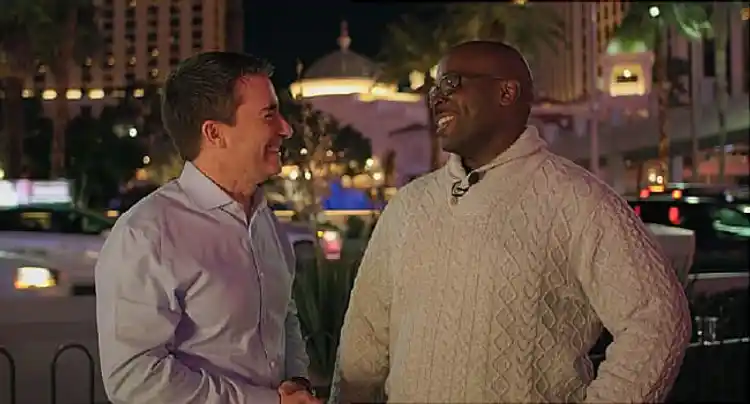The Pulse: Test Your Sleep Knowledge

Hide Video Transcript
Video Transcript
[MUSIC PLAYING]
[BEEPING]
Do you snore?
[LAUGHTER]
Is that harmful?
[LAUGHS]
[LAUGHTER]
So seven to nine. Eight is the average number of hours we should get every night. Do you use television screen--
JOHN WHYTE
All right. I'm going to go find these people to talk to me about their dreams and how well they're sleeping. Come along. [BEEPING]
Do you snore?
SUBJECT 1
I don't. SUBJECT 2
My husband says I do. [LAUGHTER]
SUBJECT 3
A little bit. JOHN WHYTE
A little bit. Is that harmful?
SUBJECT 3
Most likely. JOHN WHYTE
Why is that? SUBJECT 3
Because I sleep next to her. [LAUGHS]
JOHN WHYTE
OK. Snoring actually can be harmful-- a sign of something like sleep apnea. Is it OK to have a nightcap before you go to sleep? SUBJECT 3
Is it OK, or should I? [LAUGHS] JOHN WHYTE
Is it OK? SUBJECT 4
Like, sometimes, I drink, like, warm milk. SUBJECT 5
Oddly enough. JOHN WHYTE
Is that good? SUBJECT 5
Probably not. JOHN WHYTE
Probably not, no. SUBJECT 5
But I tell you, it knocks me right out. JOHN WHYTE
Right. Alcohol, other drinks aren't good. All right. Do you dream? SUBJECT 6
Yeah, I dream a lot. JOHN WHYTE
What was your dream last night? SUBJECT 6
About money. [LAUGHS] SUBJECT 7
Hm. I can't tell you that dream. SUBJECT 8
Probably a nightmare. JOHN WHYTE
Does everyone dream? SUBJECT 9
Yes. SUBJECT 7
Everyone should dream. JOHN WHYTE
We all do dream. But we might not remember them. But we all do have dreams every night. How much sleep did you get last night? SUBJECT 10
Seven hours. SUBJECT 11
Nine hours. JOHN WHYTE
Nine hours. All right. JOHN WHYTE
Those are perfect answers. [LAUGHTER]
So seven to nine. Eight is the average number of hours we should get every night. Do you use television screen--
SUBJECT 7
Yes. JOHN WHYTE
--computer screen before you go to sleep? SUBJECT 13
Yeah. I usually watch TV, surf the internet on my phone. JOHN WHYTE
Do you think that light impacts you at all? SUBJECT 7
It helps me sleep better, I think-- fall asleep. JOHN WHYTE
Why do you think that is? SUBJECT 7
I don't know. SUBJECT 9
I know I'm not supposed to. But yeah. JOHN WHYTE
How do you know? SUBJECT 9
Because I've read that everywhere. I probably read that on WebMD, to be honest. JOHN WHYTE
That light tricks our brain into thinking that it's daytime. So therefore, it blocks the production of melatonin, which helps us to fall asleep. 